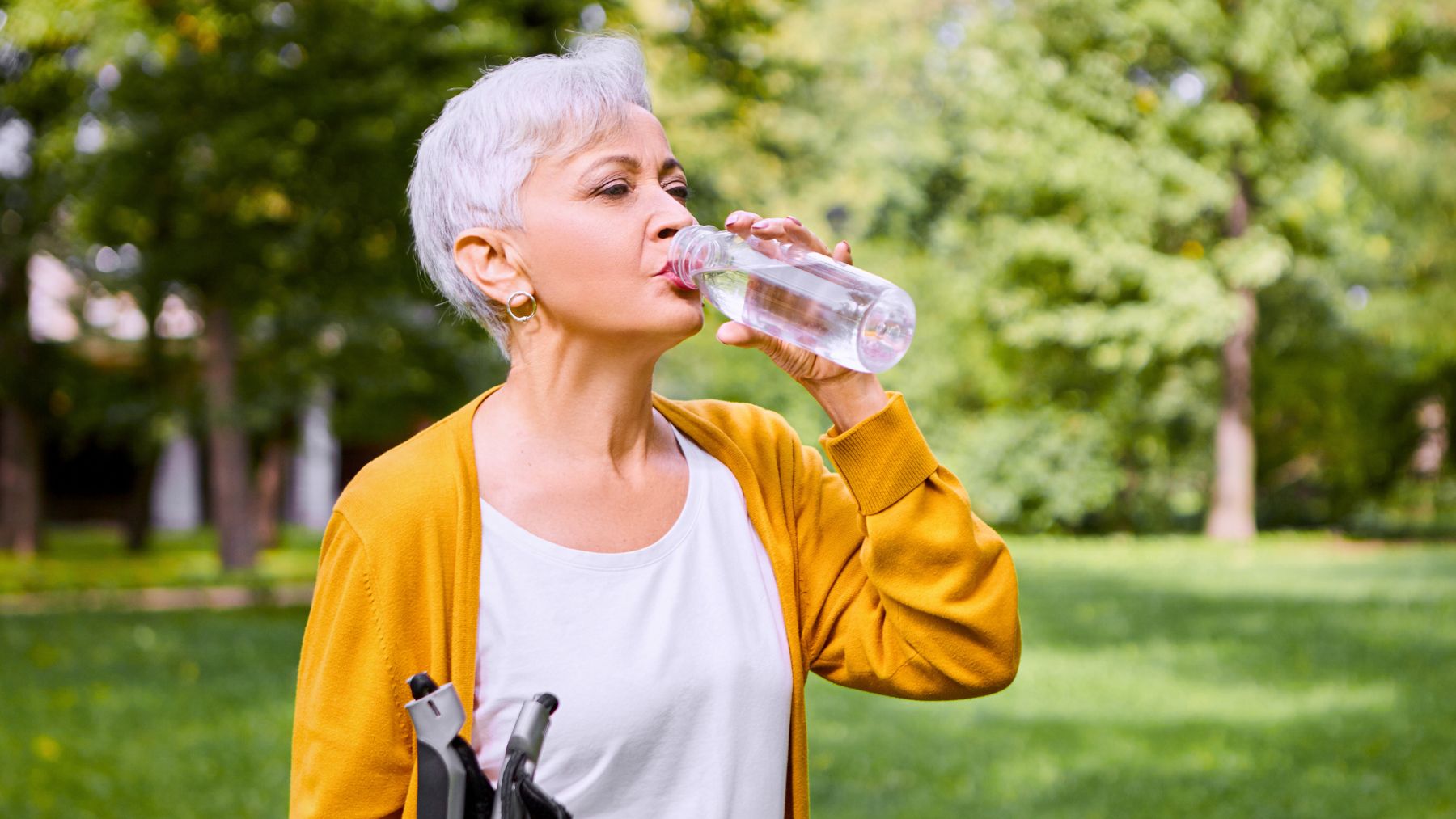Sometimes it might seem that keeping a water bottle nearby is enough to stay hydrated, but for retirees, that alone may not do the job. As we age, the body’s natural cues for thirst get weaker, and daily routines often shift in ways that make regular water intake less consistent.
Drinking enough water is essential for seniors. It supports digestion, helps with medication absorption, and protects against common health issues like constipation and urinary tract infections. Here, we’ll go over four simple ways to increase your fluid intake, and look at why hydration becomes harder—but more important—with age.
4 simple ways to drink more water for retirees
A water bottle can be helpful, but it’s not always enough. Here are four practical ways to get more water throughout the day.
- Pair your water with your pills: If you take medication, use each dose as a chance to drink a full glass of water. For most people, this adds up to several extra cups throughout the day.
- Add fluids to your meals: Sip water between bites or serve a cup of low-sodium soup as a side. Both can boost hydration while you eat, and they’re easier to absorb when spaced out like this.
- Eat water-rich foods: Foods like yogurt, fresh fruit, vegetables, or milk all help with hydration. These are especially useful for people who have trouble drinking large amounts at once.
- Make water more appealing: You can add slices of lemon, cucumber, or berries to your water or prepare refreshing drinks such as lemonade, coconut water, or tomato juice. You can also keep a cold pitcher in the fridge so it’s ready at any time.
These tips are easy to stick with once they’re part of your routine, and they don’t require measuring, tracking apps, or anything complicated. The idea is to make hydration feel natural, not like a chore.
Why it’s more important for retirees to drink water
Staying hydrated is important at every age, but seniors face some specific challenges that make it even more essential. First, the body’s thirst signal weakens over time. That means by the time you feel thirsty, you may already be slightly dehydrated. On top of that, many common medications—including diuretics and laxatives—can increase fluid loss.
Dehydration in older adults can lead to serious issues. It’s been linked to fatigue, confusion, dizziness, low blood pressure, and increased risk of falls. It can also worsen existing health conditions like diabetes, kidney disease, or cognitive decline. For people in long-term care or with limited mobility, the risk is even higher.
Some older adults drink less water either because getting to the bathroom is physically difficult or because they’re afraid of accidents due to incontinence. This can backfire as it increases the risk of urinary tract infections, constipation, and other issues mentioned earlier.
Instead of limiting fluids, it’s better to address the underlying cause. If incontinence is a concern, talk to your doctor about ways to manage it without putting your hydration at risk.

